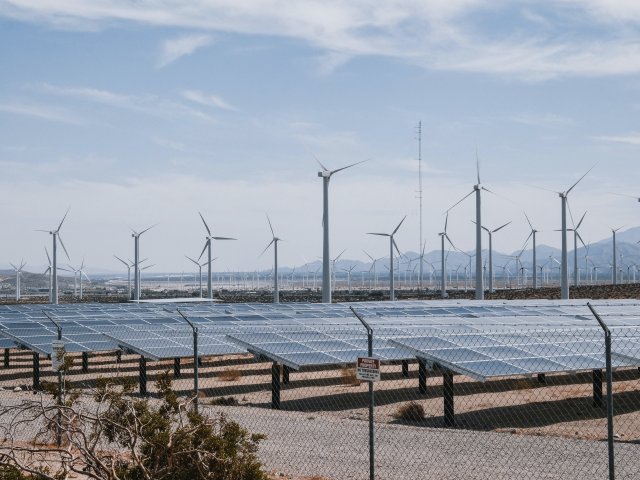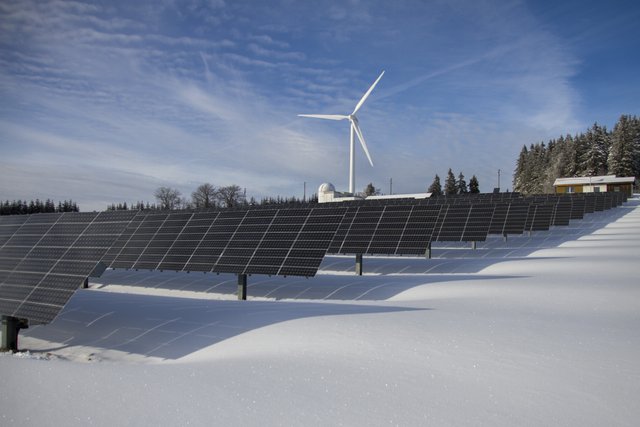RENEWABLE ENERGY: IS THIS THE WAY TO GO FOR DEVELOPING NATIONS?
For thousands of years, the 7.7 billion population of planet earth has heavily relied on burning fossil fuels to generate energy. This particular source of energy however is associated with problems ranging from global warming to its non renewability which has further compounded the problems already faced by developing nations. Now, the seemingly obvious question is what source of energy is safer, cheaper, more reliable and at the same time sustainable in the preservation of our dear planet earth?
In this article, you are about to find out how developing nations can reduce their dependence on burning fossil fuels by switching to renewable sources of energy.
WHAT IS RENEWABLE ENERGY?
Renewable energy, also known as clean energy can be referred to as a type of energy which is collected from natural sources, Renewable energy always replenish to replace the portion depleted by usage and consumption either through natural reproduction or other recurring processes in a finite amount of time. Types of renewable energy include; wind energy, solar energy, geothermal energy, tidal energy, bioethanol e.t.c. Also, Renewable energy could displace conventional fuels in the following areas;
•Electricity generation
•Water heating
•Transportation
WHY DOES RENEWABLE ENERGY MATTER?
Renewable energies are clean, inexhaustible and even increasingly competitive energy. They differ in their diversity, abundance and usage potential. While most importantly, they do not cause pollution of the atmosphere nor do they aid in global warming. The cost of using renewable energy is falling at a sustainable rate unlike that of fossil fuels which has over time been associated with the erratic increase.
The ability to produce renewable energy locally can be achieved by encouraging nations to contribute to their fight against situations where a majority of the inhabitants of a country are negatively affected by the use of fossil fuels. This in a way could also reduce the dependence of developing nations on foreign economies as they spend little on technologies required in fossil fuel conversion.
Renewable energy, if efficiently exploited could reduce the over-dependence of countries, particularly developing nations on fossil fuels. It has also been further proved that transitioning to renewable energy could aid in the quest towards a clean and more suitable energy future.
IS RENEWABLE ENERGY RIGHT FOR DEVELOPING NATIONS?
Currently, developing nations are heavily dependent on natural gases, coals and other carbon-based fuel. This has further contributed to the lingering crisis of global warming and climate change. However, renewable energies has proved to be an indispensable and inexhaustible. Renewable energies can be instrumental in the fight against climate change and global warming. They are renewable as they are sometimes do not emit greenhouse gases such as chlorofluorocarbons and carbon dioxide in the process of generating energy. This makes them the cleanest and most viable solution to prevent the degradation of the environment.
A common problem attributable to most developing nations is energy poverty. According to the Energy poverty Action initiative of the World Economic Forum: “Access to modern technology is fundamental to improving quality of life and is a key imperative for economic development”.
However, a majority of the population in developing nations reside in rural areas where there is lack of modern energy infrastructures (such as transmission lines, power plants) to transport energy resources such as natural gas and electricity to the inhabitants. Hence, it has made them reliant on traditional biomass. Traditional biomass such as firewood.
The problem of energy poverty can be redressed using indigenous energies such as wind, solar or tidal energy, these energies are of clean sources, and can give developing economies an advantage while simultaneously trying to achieve energy independence. Dependence on non-renewable energy can lead to subordination to supplier country of fossil fuels which may inadvertently compromise the political or economic ideas of the purchasing country.
At a macro level, the cost of establishing infrastructures necessary to provide energy from-renewable source is uneconomical. Thus has led to a majority of the developing nation population to rely on traditional biomass such as wood, charcoal, for cooking. The constant use of these type of energy sources exposes them to acute respiratory illness. The WHO estimates that 2.5 million people in developing are dying prematurely from inhaling fumes from traditional biomass. Renewable energy like wind, solar or hydrothermal energy can help provide safe and clean energies to reduce exposure to infectious diseases, to refrigerate medicines and sterilize equipment ailments in rural areas.
WHAT ARE THE BENEFITS?
Usage of renewable energy by start-up companies or established companies in developing nations can aid the judicious use of finance. Well, this will not only save the cost of establishing and maintenance cost but it will save the cost of operating the infrastructures. When you are using energy from the wind or solar radiation, you don’t have to incur costs such as the cost of buying fuels, latest technological equipment e.t.c. This would aid the value for money performance of the entity, and increase the revenue generation capacity of the entity. In addition, it will increase tax revenue of the Government, aid the economic growth and also the economic development of the developing nation.
Renewable energy emits little or no greenhouse gas. This invariably means a lesser carbon footprint in the environment. It would even reduce health problems in the society and prolong the life expectancy index of the developing nation. The use of a non-renewable source of energy such as natural gases or coal can lead to respiratory and cardiac health issues. On the other hand, with the use of renewable energy you are contributing to an overall healthier environment.
By developing renewable energy, developing countries can reduce their dependence on oil and natural gases, creating energy portfolios that are less vulnerable to price hikes. In many cases, investments in renewable energy are less expensive than fossil fuel energy systems. For example, off-grid renewable technologies provide a sustainable and costs saving alternative to fuel consuming generators.
The aforementioned are few out of the numerous benefits that could be obtained from investing in renewable source of energy by developing nations as evidenced in 2015, when investment in non-hydro renewable was higher in developing countries, with $156 billion invested mainly in China, India and Brazil.
LOOKING FORWARD?
Currently, the usage of renewable energy is faced with restrictions due to continued use of natural gas, coal and other types of non-renewable energy. Also, other factors such as Political, Socio-Cultural and Legal bindings have also contributed to the reluctance of most developing nations to adopt this reliable clean energy.
Anyways, the fact still remains that, when it comes to renewable energy, the benefits outweighs the associated limitations and transitioning to renewable energy is the most sustainable and viable alternative for developing nations to adopt.

